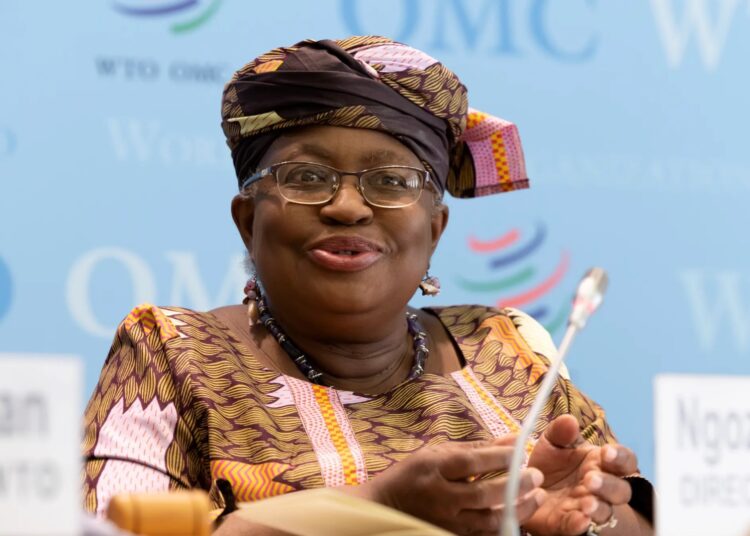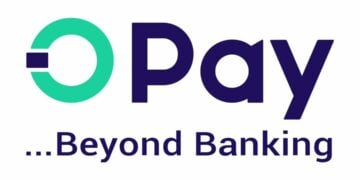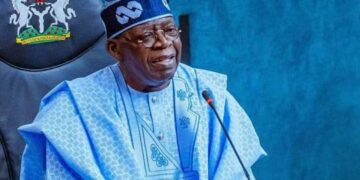The director-general of the World Trade Organisation (WTO), Dr Ngozi Okonjo-Iweala, has highlighted the transformative potential of artificial intelligence (AI) in creating jobs and boosting Nigeria’s economy.
On Tuesday, at the 10th convocation ceremony of the African University of Science and Technology (AUST) in Abuja, she stressed that Nigeria must embrace AI to unlock billions of dollars in productivity gains and overcome long-standing economic challenges.
“Nigeria can get it right. If Nigeria could get it right, our economy could reap major rewards,” Okonjo-Iweala said, emphasising that AI could revolutionise sectors by creating pathways for job growth, empowering local talents, and enabling Nigerian coders to compete globally. The convocation saw the presentation of honorary doctorate awards to Okonjo-ideal, Oliver Alawuba, the group managing director of UBA, and Kashim Ibrahim-Imam, the chairman of TETFund, among others.
Delivering a lecture titled “Artificial Intelligence and Frontier Technologies: Harnessing Opportunities and Tackling Challenges to Drive Africa’s Development,” she underscored the need for Nigeria and other African nations to close the digital divide through strategic investments in infrastructure, regulatory frameworks, and digital literacy.
“Investments in infrastructure, regulatory frameworks, and upskilling our young people are crucial. Let’s be creative about partnerships in academia, technology, and the private sector to move forward. With foresight and careful planning, Nigeria and Africa can harness the potential of AI for economic transformation,” she said.
Dr Okonjo-Iweala also noted that AI could boost global economic activity by $15.7 trillion—or roughly 15%—by 2030. She urged institutions like AUST to foster AI development in Nigeria and the continent, ensuring that Africa benefits from the AI revolution.
“For Nigeria, AI can open pathways to create jobs that enhance and leverage local talents and cheaper white collar services with lower cost for Nigerian companies. Generating AI tools could help more Nigerian coders compete globally and open new avenues for scientific research in Nigeria.
“To realise these potentials, Nigeria and other African countries will need to close the digital divide,” she said yesterday in Abuja.
Dr. Okonjo-Iweala encouraged the graduates to embrace innovation and lifelong learning. “You graduates are not just beneficiaries of this transformation but also among its architects. Strive for excellence and commit to building solutions that address local and global challenges,” she advised.
The keynote speaker at the event, Abisoye Coker-Odusote, Director-General of the National Identity Management Commission (NIMC), highlighted the role of AI in enhancing transparency and service access. She stressed the importance of public-private partnerships to improve Nigeria’s identity registration system and ensure inclusivity.
“Public-private partnerships can build confidence and improve access to enrollment services across Nigeria’s diverse regions. Investments in mobile enrollment units, online platforms, and biometric verification systems are driving significant progress,” she said.
AUST President Peter Onwualu pledged to combat brain drain by establishing centres of excellence across Africa. He revealed plans to produce technology-driven graduates with AI, data science, and entrepreneurial skills.
“Our curriculum is being modified to include artificial intelligence, data sciences, and entrepreneurship, ensuring our graduates are industry-ready and equipped to address emerging challenges,” Onwualu stated.
The convocation ceremony witnessed the awarding of diplomas, master’s degrees, and PhDs to 58 students. Dr. Okonjo-Iweala, UBA Group Managing Director Oliver Alawuba, and TETFund Chairman Kashim Ibrahim-Imam were among the recipients of honorary doctorates.
With a clear call to action, the event underscored the urgency of adopting AI for Nigeria’s economic development and global competitiveness.





